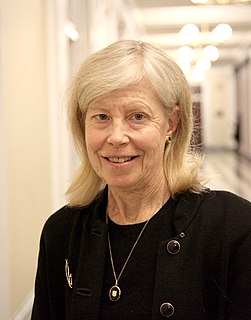A Quote by Kapil Sibal
Just as judges have enormous stake in the appointment of judicial officers in the higher judiciary, the government has an equal stake. Since both of us have stakes in the appointment of members of the higher judiciary, the consultation of both of them is absolutely necessary. The government must have a say.
Related Quotes
Missionary work will never be what it might be without the help of the members. Stake presidents need to feel some responsibility and ownership of missionary work. The stake president is the one who has the presiding priesthood keys over both the members and non-members in his stake. The missionaries are his helpers.
Power is the great evil with which we are contending. We have divided power between three branches of government and erected checks and balances to prevent abuse of power. However, where is the check on the power of the judiciary? If we fail to check the power of the judiciary, I predict that we will eventually live under judicial tyranny.
You can understand why the original framers of judicial ethics thought it would be undignified and would call into question the legitimacy of the judicial decision-making process to have mudslinging by judges, but the way that we hobble people of enormous integrity from defending themselves is, I think, deeply problematic in states where you have an elected judiciary, or a judge is subject to recall.
It seems to many of us that if we are to avoid the eventual catastrophic world conflict, we must strengthen the United Nations as a first step toward a world government patterned after our own government with a legislature, executive and judiciary, and police to enforce its international laws and keep the peace.



























